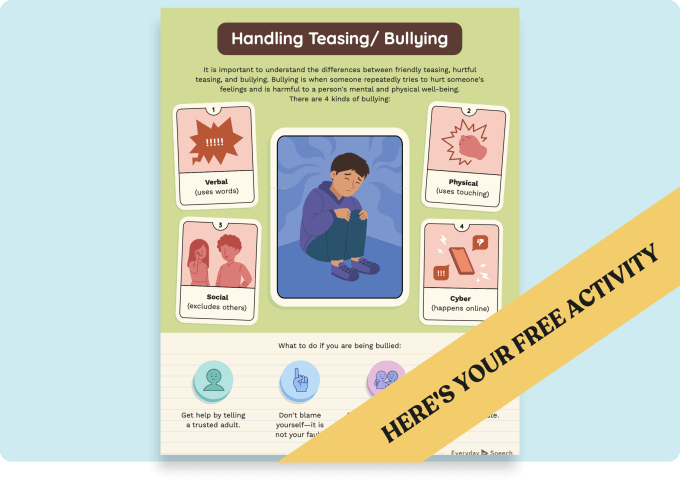Teaching PreK Students the Art of Conversation: Activities and Tips
Get free social skills materials
No-prep lessons on self-regulation, emotional recognition, conversation skills, and more.
Sign up hereIntroduction
As educators, we know that helping young learners develop strong conversation skills is essential for their social-emotional growth. In this blog post, we will discuss an engaging no-prep activity that encourages PreK students to practice taking turns in a conversation, using one to three sentences as an answer. We will also provide discussion questions, mention related skills, and guide you to access more resources to further support your students’ development.
No-Prep Activity
For this activity, you don’t need any materials or preparation. The goal is to help students practice taking turns in a conversation by giving one to three sentence answers. Here’s how it works:
- Divide students into pairs or small groups.
- Choose a topic or prompt for the conversation (e.g., favorite movies, as in the example provided).
- Ask students to take turns sharing their thoughts, making sure they provide one to three sentences as an answer.
- Encourage students to listen carefully to their peers and respond with relevant comments or questions.
- After a few minutes, switch the topic or prompt and repeat the process.
This activity helps students practice being mindful of their responses, ensuring they contribute relevant information while allowing others to participate in the conversation.
Discussion Questions
Use these questions to spark further discussion and reflection on the activity:
- Why is it important to take turns in a conversation?
- How does limiting our responses to one to three sentences help others feel included in the conversation?
- What can we do to make sure we are actively listening to our conversation partners?
- How can we ask questions to show we are interested in what others have to say?
Related Skills
In addition to practicing conversation skills, this activity also supports the development of other important social-emotional learning competencies:
- Active listening: Encouraging students to pay attention to their peers’ responses fosters empathy and understanding.
- Self-awareness: By reflecting on their own communication style, students become more aware of their strengths and areas for improvement.
- Relationship-building: Engaging in meaningful conversations helps students develop strong connections with their peers.
Next Steps
Now that you’ve learned about this engaging no-prep activity, we encourage you to try it out in your classroom and witness the positive impact on your students’ conversation skills. To access more resources and support your students’ social-emotional learning journey, sign up for free samples of related skills and activities at Everyday Speech. You’ll find a wealth of materials designed to help you enhance your students’ learning experience and foster their growth.

